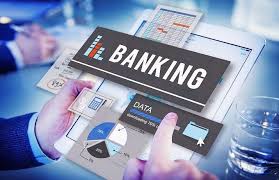Hello, welcome to the future of banking in Malaysia!
Digital banking is revolutionizing Malaysia's financial landscape. Say goodbye to long queues and hello to convenient, accessible banking services. Learn about the benefits, challenges, and future of digital banking in Malaysia. Is this the future of your finances?
FINANCES


Do you ever feel like it takes forever to get to the bank?
Between rush hour traffic and endless paperwork, traditional banking can be a real drag.
But what if you could skip the queues and manage your money from the comfort of your sofa (or even the chair at your favourite mamak outlet)?
This is where digital banking comes in and revolutionizes banking in Malaysia.
We're talking about opening accounts in minutes, applying for a loan without a lot of paperwork, and tracking your spending habits with the tap of a finger.
Sounds pretty sweet, right?
Wait, what exactly is digital banking?
Think of it as a complete overhaul of banking - but much cleaner and more accessible.
Unlike online banking, which is essentially an extension of traditional banking, digital banks operate entirely online.
They use great technology like AI and biometrics to ditch the clunky old systems and make everything faster, smoother and, dare we say it, even a little fun.
So why is everyone freaking out about digital banking?
Here's the dark:
Goodbye bank lines! Forget wasting hours waiting in line. With the digital banking service, you can manage your money anywhere and anytime. Want to transfer money to a friend? Pay the bill? Don't worry, it's all done with a few clicks from your phone.
Reaching the unbanked masses. Millions of Malaysians, especially those living in rural areas or the gig economy, cannot access traditional banking services. Digital banks can change this by offering easy account opening and financial services without a physical branch. This is financial inclusion at its best!
You save everyone money! Traditional banks have a lot of overhead, which means higher fees for you. Thanks to their simplified operations, digital banks can offer lower fees and even better interest rates on your savings.
Sounds too good to be true, doesn't it? However, there are a few things to consider.
Your money is protected! Security is a major concern in digital banking. With all the information flying around on the internet, it is very important that these new players have advanced security measures. We're talking about strong encryption, fraud prevention, and making sure your hard-earned money is safe from prying eyes.
Is your internet fast? Digital banking is based on a strong and stable internet connection. While Malaysia is working to improve its infrastructure, there are still areas where internet access is limited or unreliable. This can be a barrier for some, especially in rural areas.
What does this mean to you?
Digital banking can become a part of Malaysia.
It can make banking faster, easier and more convenient for everyone.
This in turn can boost the economy, improve financial literacy and even help close the gap between the banking sector and bank accounts.
But it's not all sunshine and rainbows yet. The government and these new digital banks must work together to address security issues and ensure that everyone has the internet connection they need to benefit.
What do you think? Are you excited about digital banking coming to Malaysia? Let us know in the comments below!
We want to hear from you! Here are some more topics to consider:
* What digital banking features are you most excited about?
* Having digital banking security issues?
* What can be done to improve Internet access in rural areas?
* Would you switch to a digital bank?
By discussing these issues, we can create a space for an open discussion about the future of banking in Malaysia.
We are all in this together and your voice matters! ️.
Digital banking is revolutionizing Malaysia's financial landscape.
Say goodbye to long queues and hello to convenient, accessible banking services. Learn about the benefits, challenges, and future of digital banking in Malaysia. Is this the future of your finances?


